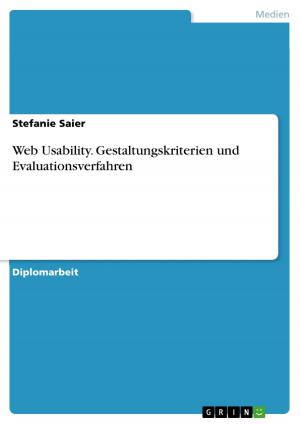Governance in EU Institutions: The Commission or Consensus as Effectiveness
Nonfiction, Social & Cultural Studies, Political Science| Author: | Johannes Wiedemann | ISBN: | 9783640964482 |
| Publisher: | GRIN Verlag | Publication: | July 21, 2011 |
| Imprint: | GRIN Verlag | Language: | English |
| Author: | Johannes Wiedemann |
| ISBN: | 9783640964482 |
| Publisher: | GRIN Verlag |
| Publication: | July 21, 2011 |
| Imprint: | GRIN Verlag |
| Language: | English |
Seminar paper from the year 2010 in the subject Politics - International Politics - Topic: European Union, University of Flensburg, course: Course 'European Governance', language: English, abstract: The concepts of governance have the advantage of including the informal aspect of decision-making into their scope of analysis. The intention of this paper is the application of a fitting conceptual derivative of governance on the decision making process inside the institutional framework of the Commission of the European Union. The notion to be tested is the one of the Commission being by its institutional heritage inclined to promulgation of consensus among its principal actors, the members of the college of Commissioners. So what kind of governance might be characteristic for the Commission? The political setting is that of the European Union, which is on the one hand an intergovernmental organization of member states on equal terms, but on the other hand a political institution. Apart from partly being established on a supra-national echelon, which is rationally designed and controlled for the purpose action and intervention to foster economic prosperity and integration in accordance with the concepts of functional and rational-choice institutionalism characteristic for social and political institutions of modernity. As the EU is itself an extension of the mostly politically pluralistic and socially fragmented Member States (MS), certain elements and processes influencing the promulgation of the political will on all legislative governmental echelons are present in the context of governance in the European Union as well. The hypothesis of this paper consists of the following notions: Due to the 'sui generis'-character the EU,1 employing decisions by consensus even on intergovernmental as well as on supranational level is most effective politics possible. Applying concepts of governance to the Commission?s competences, institutional framework and formal as well as , if perceptible, informal decision-making procedures and customs, will show that although the Commission matches no distinct concept currently present in academia, it very well fulfils basic requirements of 'good? governance. Even as the supra-national institution per se, the Commission acts according to these notions.
Seminar paper from the year 2010 in the subject Politics - International Politics - Topic: European Union, University of Flensburg, course: Course 'European Governance', language: English, abstract: The concepts of governance have the advantage of including the informal aspect of decision-making into their scope of analysis. The intention of this paper is the application of a fitting conceptual derivative of governance on the decision making process inside the institutional framework of the Commission of the European Union. The notion to be tested is the one of the Commission being by its institutional heritage inclined to promulgation of consensus among its principal actors, the members of the college of Commissioners. So what kind of governance might be characteristic for the Commission? The political setting is that of the European Union, which is on the one hand an intergovernmental organization of member states on equal terms, but on the other hand a political institution. Apart from partly being established on a supra-national echelon, which is rationally designed and controlled for the purpose action and intervention to foster economic prosperity and integration in accordance with the concepts of functional and rational-choice institutionalism characteristic for social and political institutions of modernity. As the EU is itself an extension of the mostly politically pluralistic and socially fragmented Member States (MS), certain elements and processes influencing the promulgation of the political will on all legislative governmental echelons are present in the context of governance in the European Union as well. The hypothesis of this paper consists of the following notions: Due to the 'sui generis'-character the EU,1 employing decisions by consensus even on intergovernmental as well as on supranational level is most effective politics possible. Applying concepts of governance to the Commission?s competences, institutional framework and formal as well as , if perceptible, informal decision-making procedures and customs, will show that although the Commission matches no distinct concept currently present in academia, it very well fulfils basic requirements of 'good? governance. Even as the supra-national institution per se, the Commission acts according to these notions.















